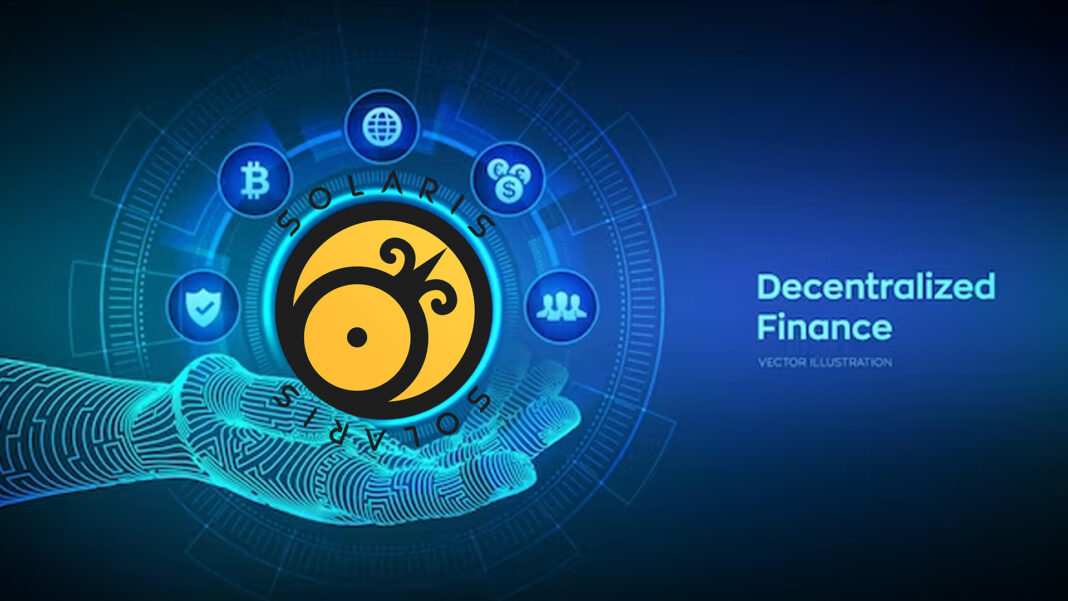- Solaris Network bridges the gap between traditional finance and Decentralized Finance (DeFi)
- The platform uses smart contracts on the blockchain to generate digital representations of physical assets
- Solaris Network aims to make crypto trading and investment accessible to everyone
In recent years, the financial industry has undergone a paradigm shift, and blockchain technology has been instrumental in enabling decentralized, barrier-free, audit-resistant financial services. This is where Solaris enters the picture, providing a decentralized synthetic asset economy based on Web 3.0 concepts.
The groundbreaking synthetic asset ecosystem of Solaris Network, a premier decentralized platform at the forefront of blockchain technology, has officially launched. The Solaris Network, a decentralized platform for creating and trading synthetic assets, is based on Web 3.0 technology and bridges the gap between traditional finance and decentralized finance (DeFi).
What Is Solaris?
Users can build and exchange synthetic assets on the decentralized Solaris Network platform. Financial products known as synthetic assets can mimic the price changes of actual assets without someone actually owning the underlying assets. The platform was created using the Binance Smart Chain (BSC), and it will eventually support additional blockchain networks.
Using smart contracts on the blockchain, synthetic assets are generated as digital representations of physical assets or financial goods. Solaris enables users to create synthetic assets that have the same value and properties as the actual assets by collateralizing derivatives involving cryptocurrency and other comparable assets. This can include synthetic assets related to cryptocurrencies as well as those that simulate off-chain financial instruments.
Users can trade these synthetic assets on the Solaris platform once they have been produced. Users can purchase and sell these digital assets on the platform, which offers a decentralized exchange (DEX) or market. Users do not have to entrust a centralized body with their money because non-custodial accounts provide them with complete control over their assets.
Solaris aspires to create a complete and inclusive financial ecosystem by providing a variety of financial services, such as the development and trading of synthetic assets. This suggests that users from all around the world can use the platform and access it without obstacles or limitations, enabling more financial inclusion and opportunity.
Solaris’ Potential In DeFi
The Solaris Network presents an enormous opportunity for the DeFi derivatives market. It can make use of the smart contract-awarded programmable asset attributes to broaden the types and areas of use for DeFi derivatives. By developing synthetic assets that replicate the performance of real-world assets like equities, commodities, and currencies, it may also assist in resolving the problem of bringing real-world assets on-chain in a trustless manner. As a result, on-chain investment in foreign exchanges, different equities, stock indices, put/call options, futures, and even insurance will be made possible.
Decentralized and permissionless financial infrastructure, or DeFi, is the use of cryptocurrencies and blockchain technology to improve and replicate established financial institutions like lending, borrowing, trading, and asset management. Solaris aims to overcome some of the major issues and constraints faced by currently available DeFi technologies including scalability, security, and usability.
Any platform built on a blockchain must be scalable in order to be widely used. A special protocol dubbed Solana, which is renowned for its high throughput and low latency capabilities, is used by Solaris to address this problem. DeFi activities are carried out quickly and effectively because of Solana, which allows Solaris to process thousands of transactions per second. A unique consensus mechanism called Proof-of-History (PoH) and a parallel processing architecture are used to achieve this scalability.
DeFi platforms must also be secure because they manage sensitive financial information and large quantities of customer money. Solaris has cutting-edge security mechanisms in place to safeguard user assets and thwart criminal or unauthorized activity. To guarantee the integrity and security of transactions and user cash, the platform makes use of multi-signature wallets, smart contracts, and sophisticated cryptographic methods.
Usability is important for DeFi’s general adoption. The main goal of Solaris is to offer a user-friendly and intuitive interface that makes it simple for both seasoned users and newcomers to explore and engage in a variety of DeFi activities. Through its web and mobile applications, the platform provides consumers with a smooth and simple user experience that makes interacting with the DeFi ecosystem simple.
Conclusion
Users and organizations in the worldwide financial sector are invited to learn more about Solaris Network’s all-inclusive platform as it grows and makes innovations. The Solaris Network seeks to make crypto trading and investment accessible to everyone, without the need for substantial understanding, by focusing on dependability, security, and scalability.




